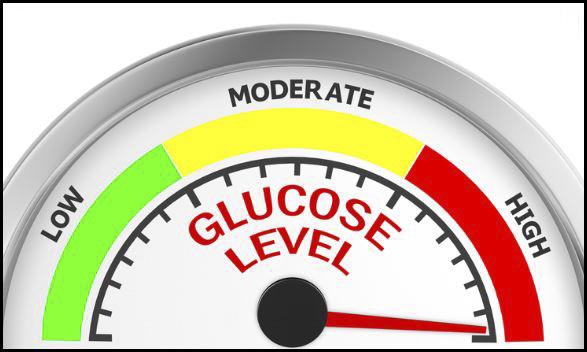
Magnesium Magnificence
There are two approaches to considering magnesium. The first is the body’s requirement of magnesium for its many functions. The second is the therapeutic benefits it provides to improve a specific condition.
Because magnesium has so many functions within the body this article barely scratches the surface. Therefore it’s written as an overview of the significance and priority this mineral has to our health. Enjoy.
INSIGHTS FOR HEALTH radio interview with Linda Bolton
MAGNESIUM: THE ESSENTIAL MINERAL
part 1 (14:29)
part 2 (12:38)
Functions
Magnesium is one of the body’s four major electrolytes along with calcium, sodium and potassium. Magnesium is a catalytic mineral that activate over 700 enzymatic processes. A catalyst is a substance that will increase the rate of a chemical reaction without any chemical change to itself. An enzyme is a substance produced by a living organism which acts as a catalyst to bring about a specific biochemical reaction. Hundreds of these enzymes require magnesium to function. Magnesium is a co-factor to producing cellular energy. Every cell in the body produces its own energy through the mitochondria. A deficiency in magnesium will affect the energy level of the body.
Recommended Daily Allowance
Statistics indicate that approximately 80% of North Americans are magnesium deficient. That indicates a stress to our optimal health. One might think that magnesium would be easy to acquire in our groceries. The problem is this, the foods we consume do not have the 300 to 500 mg RDA (Recommended Daily Allowances) relative to age and gender. For example, the RDA for women age 19-30 is 310 mg, age 31+ is 320 mg. For men age 19-30 the RDA is 400 mg, age 31+ is 420 mg. The RDA increases through pregnancy.
Correct Ratio
Another potential health problem is the ratio of calcium to magnesium. A 2:1 calcium / magnesium ratio is optimal. It’s not uncommon to see a 10:1 ratio, especially if we consume a lot of dairy. Too much calcium can create a long list of potential side effects. Add to this the things that deplete magnesium from our body. Things like caffeine, alcohol, sugar processed foods, stress and perspiration. Depletion without replacement and the body is stressed. Something has to give!
Low Magnesium
Too low magnesium has a list of side effects and symptoms. Things like muscle twitches, migraines, aches and pains, muscle cramps, migraines, mood irregularities like anxiety and depression, heart irregularities and high blood pressure, fatigue, PMS, disrupted sleep patterns and insomnia, are all symptoms. The long term effects of low magnesium can increase the risk for high blood pressure and heart disease, and increased risk of type 2 diabetes and osteoporosis. Definitely an important mineral to our health and longevity. When chronically too low our bodies will experience disruptions in fundamental functions. Our cell energy is low and protein synthesis is inadequate. The question becomes, “Which one of these will occur?” (if it hasn’t already).
Answer our DEFICIENCY Questionnaire
MAGNESIUM DEFICIENT QUESTIONNAIRE
Some Therapeutic Benefits
Heart Health: Magnesium works in conjunction with calcium for regularity of heart beats. Calcium contracts the heart and magnesium relaxes the heart.
Blood Pressure and Cholesterol: Magnesium helps reduce both the systolic and diastolic blood pressure. Studies also reveal that low magnesium levels are associated with elevated levels of LDL, bad cholesterol.
Diabetes and Weight Management: Magnesium aids in the management of insulin and insulin action. It is a co-factor of many enzymes involved in glucose metabolism. Mg also plays a role in glucose and insulin homeostasis.
Healthy Bones: Magnesium activates vitamins D and K2 to help metabolize and absorb calcium for bone health. It plays an important role with osteoblasts (bone building cells) and osteoclasts (bone dissolving cells).
Migraines: Approximately 66% of sufferers are deficient.
Insomnia: Deficiency can alter the electrical activity in the brain causing agitated sleep and frequent awakening.
Pain and Cramps: Sufficient amounts reduces the incidence of muscle cramps. It can also alleviate restless leg syndrome.
Bowel Imbalances: Magnesium draws water into the bowel to avoid constipation.
Anxiety and Depression: Low levels have been associated with increased risk of depression and anxiety.
Stress: Magnesium is important to the enzymes and energy of the adrenal supporting the production of hormones like cortisol to deal with stress.
There are Four Forms that we carry here at THE HEALTHY HABIT.
All the following forms have the similar attributes of magnesium (relaxation, bone health, etc.) but can have additional benefits.
Magnesium Citrate:
This form of magnesium increases water in the intestines therefore is used as a laxative to treat occasional constipation. Very helpful.
Magnesium Bisglycinate:
Bisglycinate and glycinate are interchangable names. This form has a calming effect on your brain due to the the glycine. Its helpful in relieving anxiety and promoting better sleep. It helps keep bones strong by maintaining healthy bone density.
Magnesium Malate:
Combined with malic acid the health benefits include improvements in chronic pain, migraines, mood and depression.
Magnesium Threonate:
The L-Threonate form has the ability to cross the blood-brain barrier. It supports improved memory, overall cognitive function, relaxation and support sleep health.
Sometimes the simple things can make the greatest difference.
Click for your DEFICIENCY self diagnosis:
Am I Magnesium Deficient?
Questions? Contact us
Click here: THE HEALTHY HABIT


